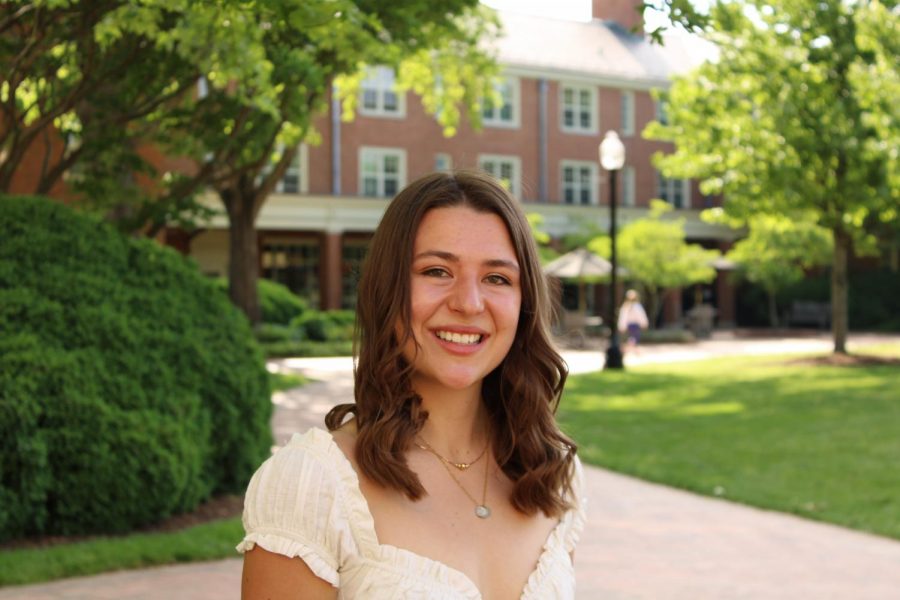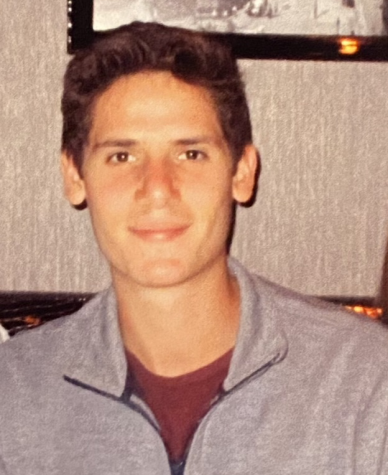Abigail Vogeley – Biology
May 7, 2021
Most students are satisfied with a major and a minor, but there are brave souls among us who want more. Even three subjects weren’t going to cut it for Abby Vogeley: this spring she’ll be graduating with a major in biology, and minors in neuroscience, psychology and writing.
And you thought you had a heavy course-load.
“[Coming into Wake] I knew that I was either going to be an English major or a biology major, because I’ve always been fascinated [thinking about] why people do things,” Vogeley said. “I’m intrigued by the biological underpinnings of our behavior, which is what drew me to the science. [But I also] want other people to be able to understand, [and that’s] where the writing comes in. These different disciplines really go hand in hand and balance each other out.”
The California native has also found time to become involved in ventures beyond the classroom over the past four years. During her freshman year, Vogeley joined Alpha Phi Omega, Wake Forest’s co-ed service fraternity. Since then, she has served as the inner-chapter relations chair, the fundraising chair, and the well-being chair.
Research opportunities have also played a sizable role in Vogeley’s undergraduate experience. At the suggestion of her advisor — Dr. Fahrbach — she reached out to a professor conducting research in the Geriatrics unit at the Wake Forest School of Medicine: Dr. Hugenschmidt. There, Vogeley worked with older people afflicted by Alzheimer’s and dementia. The research she participated in explored how dance classes could improve the balance and coordination — and even prompt neurological changes — within the brains of the older participants.
“Working with dancers and neuroscientists [and seeing this] unique collaboration has been the highlight of my senior year,” Vogeley said.
Even when the class was forced to transition to Zoom when the pandemic struck, Vogeley remained confident that the dancing was still making an impact on the lives of those with neurodegenerative diseases.
“We were able to teach all of these older people how to use Zoom, and from watching the progression of their movements and their interactions over time, [I know] there has been a profound difference in their confidence and their quality of life,” Vogeley said.
Fahrbach wasn’t surprised by Vogeley’s aptitude to seamlessly integrate her passions and apply them in research.
“Her interdisciplinary approach to her degree requirements resulted in countless synergies,” Fahrbach said. [Abby] demonstrated the power of the Biology [degree] to allow students to choose their own adventure.”
Vogeley knew she had no interest in spending the next six years at medical school, but she also knew that finding a way to merge all of her passions and find meaningful work to pursue post-graduation would be no simple task. It wasn’t until she was on the other side of the world that inspiration struck.
“I was [abroad in] Copenhagen when I took a class called psychopharmacology,” Vogeley explained. “In that class, we looked at mental illnesses and the drugs we use to treat them. We were talking about the science behind schizophrenia but also considering the humanistic perspective of why people struggle with mental health.”
“The disease isn’t the individual’s fault,” she continued. “There are biological underpinnings [at play] that affect how the individual is perceiving the world. It was the first time I found a class that really intermixed all of my interests: mental health advocation, biology, and well-being.”
Upon returning home, Vogeley began searching for an opportunity that would allow her to continue to pursue her multi-disciplinary interests. Soon thereafter she struck gold.
“I’m going to be in D.C. for the next two years working in a research fellowship position at the National Institute of Mental Health,” Vogeley said. “ I’ll be investigating different therapeutic options for individuals who suffer from treatment-resistant depression and suicidal ideation.”
“I’m excited to be working in a field I’m really passionate about,” Vogeley continued. “I want to expand what we know about depression. And I think the best way possible is to do the research and then be able to articulate effectively what we find.”
The fellowship seems as though it was tailor-made for someone with Vogeley’s dexterity — a robust understanding of the underlying science, the ingenuity to report findings in an informative yet palatable manner and the passion to re-write the narrative surrounding the treatment of mental health disorders.
Vogeley is certainly prepared to embark upon the next chapter of her journey, even though doing so means closing the door on the last one.
“I’m sad to be leaving, but I’m also really excited.” Vogeley said. “I’ve made great friends and I’ve found things I’m passionate about. [My experiences here have] shown me that individual people can make a difference, and that’s really exciting.”















